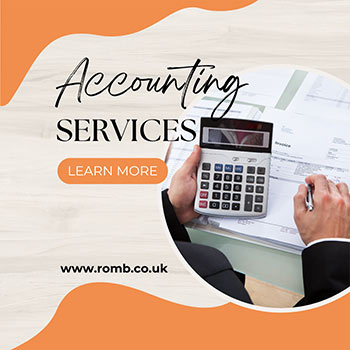
Choosing a career path is one of the most important decisions in a person’s life. Accounting is often seen as a stable, reliable, and respected profession, making it a popular choice among students and career changers in the UK. Whether you're contemplating pursuing an accounting degree or exploring job stability in the world of finance, it's crucial to understand both the advantages and drawbacks of becoming an accountant. Below, we’ll dive deep into the pros and cons to help you make an informed decision about whether accounting is the right path for you.
Pros of Being an Accountant
1. Stable and High Demand Career
In the ever-evolving professional world, the demand for accountants remains consistently strong. From small businesses in Yorkshire to major financial firms in London, organisations of all sizes require skilled accountants to manage their finances. Whether there's economic growth or downturn, the need for accounting services persists – especially when firms are navigating financial uncertainty and legislative changes.
In the UK, industries such as real estate, construction, and retail heavily rely on qualified accountants to manage budgets, prepare tax filings, and ensure compliance. This kind of job security is highly valued, particularly among young professionals seeking financial stability and career longevity.
Accounting also boasts a relatively low unemployment rate compared to other fields. In fact, the UK Government’s National Careers Service projects steady growth in accounting roles well into the future, driven by factors like more complex tax laws and stricter reporting requirements.
As an added bonus, accountants are often shielded from automation in comparison to other roles. While software tools can help with basic bookkeeping, strategic financial planning, auditing, and interpreting financial data still require human judgement.
2. Opportunities for Specialisation and Career Progression
One of the biggest perks of becoming an accountant is the vast array of specialisation opportunities. After earning your accounting degree, you can choose to further develop your expertise by gaining Chartered status (such as ACCA, CIMA or ICAEW in the UK), and then diving into fields like forensic accounting, tax consultancy, auditing, or financial analysis.
Specialising often leads to higher salaries and increases your marketability among top firms. For those who want to diversify their path, accounting also makes a great foundation for business management or entrepreneurship roles—some even end up becoming CFOs or managing directors in the long run.
The accounting profession supports continuous development. Through CPD (Continuing Professional Development) credits, you're encouraged to stay up-to-date with legal, financial and technological changes. This ongoing growth is crucial in maintaining not only job security, but also your competitive edge in the workplace.
Furthermore, many employers value loyalty and effort in accounting roles and offer clear career ladders. From junior accountant to senior consultant or financial controller, the milestones are well-defined and achievable with dedication and experience.
3. Competitive Salary Range
A career in accounting can be highly lucrative. Entry-level accountants in the UK typically start with salaries around £22,000–£30,000 annually. However, with additional qualifications and a few years of experience, mid-level professionals earn between £40,000–£60,000, particularly in London or key financial hubs like Manchester and Birmingham.
Senior roles such as Chief Finance Officer (CFO), Financial Director or Partner at an accounting firm can command six-figure salaries. In some specialised industries like investment banking, insurance or corporate finance, accounting skills are heavily rewarded.
Freelancers or self-employed accountants also have the opportunity to negotiate their rates and grow their income based on client acquisition, especially with SMEs and tradesmen turning to professionals for bookkeeping, tax filings and VAT returns.
Given that accounting provides access to such competitive salaries while maintaining job stability, it remains one of the top career choices for financially motivated individuals in the UK.
4. Diverse Work Environments
Accountants are needed across virtually every industry—construction, healthcare, tech, design, even non-profits. This means you can align your accounting career with your personal interests. If you’re passionate about architecture and design, for example, there are firms in that sector who need internal finance professionals or external consultants.
This flexibility allows you to explore various sectors and find your niche without stepping out of the profession. For people who enjoy variety or want to work for a cause they believe in, accounting provides the gateway to do so while maintaining a solid profession.
Additionally, accountants aren’t always stuck behind a desk. Many roles involve client meetings, occasional travel, or even secondments abroad. The image of the ‘boring bean-counter’ has changed – modern accountants often contribute to high-impact decision-making and are an integral part of business strategy.
Cons of Being an Accountant
1. Can Be Repetitive and Monotonous
Despite its many benefits, accounting can sometimes feel repetitive. If you’re working in auditing or payroll, for example, you might find yourself performing the same types of tasks every month. For people who thrive on creativity and variety, the routine of accounting work may feel limiting.
Month-end close, reconciliations, preparing ledgers, and other cyclical financial duties are essential parts of many accounting roles. While they’re crucial to business operations, they can become tedious unless you're continually challenged through other responsibilities or new projects.
However, some people find comfort in procedures and consistency, so this is very much a matter of personality fit. If routines soothe you and you like structured tasks, it could be a pro rather than a con.
2. High Pressure and Tight Deadlines
Accounting often involves working under significant pressure, especially around financial year ends, tax deadlines, or audits. In larger firms or during busy seasons, longer hours and higher workloads are common. This can lead to stress if not managed well.
Clients or internal teams rely on accurate and timely financial reporting – mistakes or delays can trigger financial losses or legal issues. This level of responsibility makes attention to detail crucial, and maintaining focus can be mentally exhausting.
Those working in public accounting firms or international companies may also experience pressure to bill hours or meet performance metrics, which can further contribute to burnout if boundaries aren't set early in your career.
3. Requires Ongoing Education and Regulation Compliance
Like many professional fields, accounting involves rigorous study and continuing education. In the UK, achieving Chartered status through ICAEW, ACCA or CIMA requires years of examinations, practical experience, and regular CPD updates.
The financial landscape changes frequently as new tax laws, reporting obligations and digital tools are introduced. Staying compliant and up-to-date is part of the job, but it also requires investment of both time and money.
If you’re the type who doesn’t enjoy exams or lifelong learning, this might be a drawback. For others, it’s a great way to stay professionally engaged and expand knowledge over time.
4. Entry-Level Positions May Offer Limited Creativity
For creative minds, entry-level accounting roles might not offer much room for innovation. Tasks are often rule-based, largely governed by accounting standards and tax laws. If you have an eye for design, architecture, or hands-on DIY projects, the rigid structure in beginning roles may feel stifling.
That said, as you gain experience, further responsibilities like budgeting, strategic planning, or consulting tend to be more interactive and dynamic. Many seasoned accountants develop excellent problem-solving capabilities and contribute creatively to business decisions.
Exploring advisory or financial analysis roles could better suit individuals looking to mix logic and creativity within accounting.
Conclusion: Is an Accounting Degree Worth It?
Pursuing an accounting degree can be a wise investment for those who value job security, career growth, and financial independence. It's a stable and respected profession with clear progression paths and diverse industry applications in the UK.
However, it is essential to weigh your personality traits and long-term goals. If you're detail-oriented, disciplined, and enjoy working with numbers and systems, accounting could be a perfect match. On the other hand, if you crave constant variety and creative expression, you might consider combining accounting with another interest such as entrepreneurship or consultancy.
Ultimately, like any career path, success in accounting depends on your interests, dedication, and how you leverage your skills. For many budding professionals, especially those who like structure and logical challenges, it's certainly a rewarding path to pursue.






